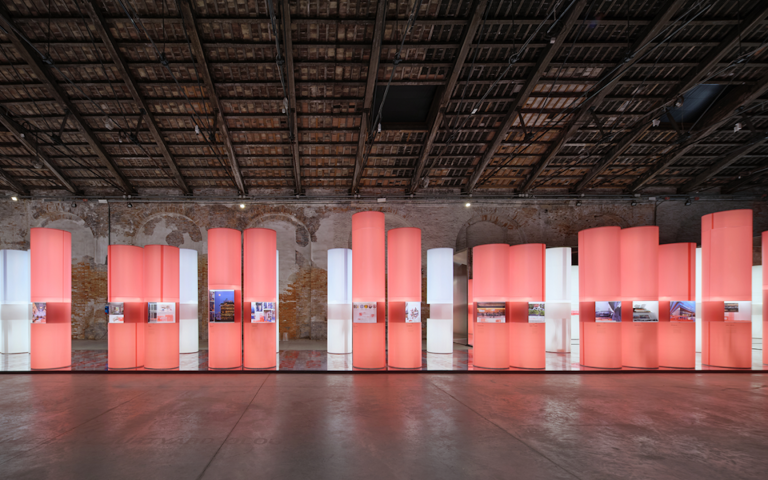Organic Totality
13 December 2023, 6:30 pm–7:30 pm

Professor Ruan Xing explores the impact of the built environment on our perceptions of place, through the spatial organisation of the courtyard in this lecture hosted by Guang Yu Ren, Director of History & Theory.
This event is free.
Event Information
Open to
- All
Availability
- Yes
Cost
- Free
Organiser
-
Guang Yu Ren
Location
-
6.02 - BSA22 Gordon StreetLondonWC1H 0QBUnited Kingdom
Through a series of seemingly unrelated projects – an exhibition, a book, a building, and a garden - Professor Ruan Xing draws attention to a phenomenon both familiar and unexpected. The efficacy of the built in one instance exists with the curious lack of it in another. This lecture attempts to read the built and unbuilt through literary worlds in what Xing describes as organic totality.
Beginning with a comparative view of Venice, an urban artifice considered par excellence, and Shanghai, a younger, bigger, and constantly evolving city, Xing explores the impact of the built environment on our perceptions of place, through the spatial organisation of the courtyard.
From approximately 1000 BCE through to 500 BCE, both in the geographies of China and on the shores of the Mediterranean Sea, courtyards are a consistent feature. Vitruvius speaks about the public character of the domus atrium and the owner’s civic duty, whilst Confucius teaches the meaning of societal decorum and morality through courtyard living. The Greek and Roman domus lasted a significantly shorter time compared to the Chinese courtyards, which continued to exist, physically and in consciousness, for more than 3000 years.
With the rapid change of urban landscapes in China and the loss of the courtyard as a spatial form, Xing returns to the question of efficacy in the built form and its discourse. Will the rebuilding of a spatial pattern help restore its efficacy, or does it lie in immaterial interlocution?
This lecture is organised by Guang Yu Ren, Director of History and Theory, The Bartlett School of Architecture, UCL.
Ruan Xing
Ruan Xing is Dean and Guangqi Chair Professor of Architecture at School of Design, Shanghai Jiao Tong University. He is a member of Shanghai Jiao Tong University Academic Committee. Xing joined Sydney’s University of New South Wales (UNSW) as Professor of Architecture in 2004. He was Associate Dean at the Faculty of the Built Environment (2015-2018), Director of Architecture (2014-16), Chair of Architecture Discipline and Director of Master of Architecture from (2005-09). Prior to his appointment to UNSW, he was Head of School of Architecture at the University of Technology Sydney (2002-04).
He is Curator of the 18th International Architecture Exhibition of La Biennale di Venezia – China Pavilion; and Architectural Curator of the 2019 Shanghai Urban Space Art Season Biennale.
Xing Ruan’s scholarly interests lie in the study of physical laws of architectural forms, comparative study of Western and East Asia’s architectural history, a cultural history of housing, housing design and way of living, vernacular architecture and cultural anthropology, architectural education, resilient architecture and design approach, urban renewal, and the study of Asia’s architecture and urbanization against the background of Western discourse. The titles of his books include: Confucius’Courtyard, Bloomsbury 2022; Fusheng Jianzhu [ Floating Life and Architecture 浮生·建筑], The Commercial Press 2020; Allegorical Architecture, University of Hawai’i Press 2006; New China Architecture, Periplus 2006; Hand and Mind, UNSW Press 2018; Topophilia and Topophobia, Routledge 2007. His books have received critical acclaim and enthusiastic appraisal both in academic journals and from some mainstream media outlets around the world.
More information
Image: The China National Pavilion, 2023 Venice Architecture Biennale, Curator: RUAN Xing; Photo by Zhangyu
 Close
Close

